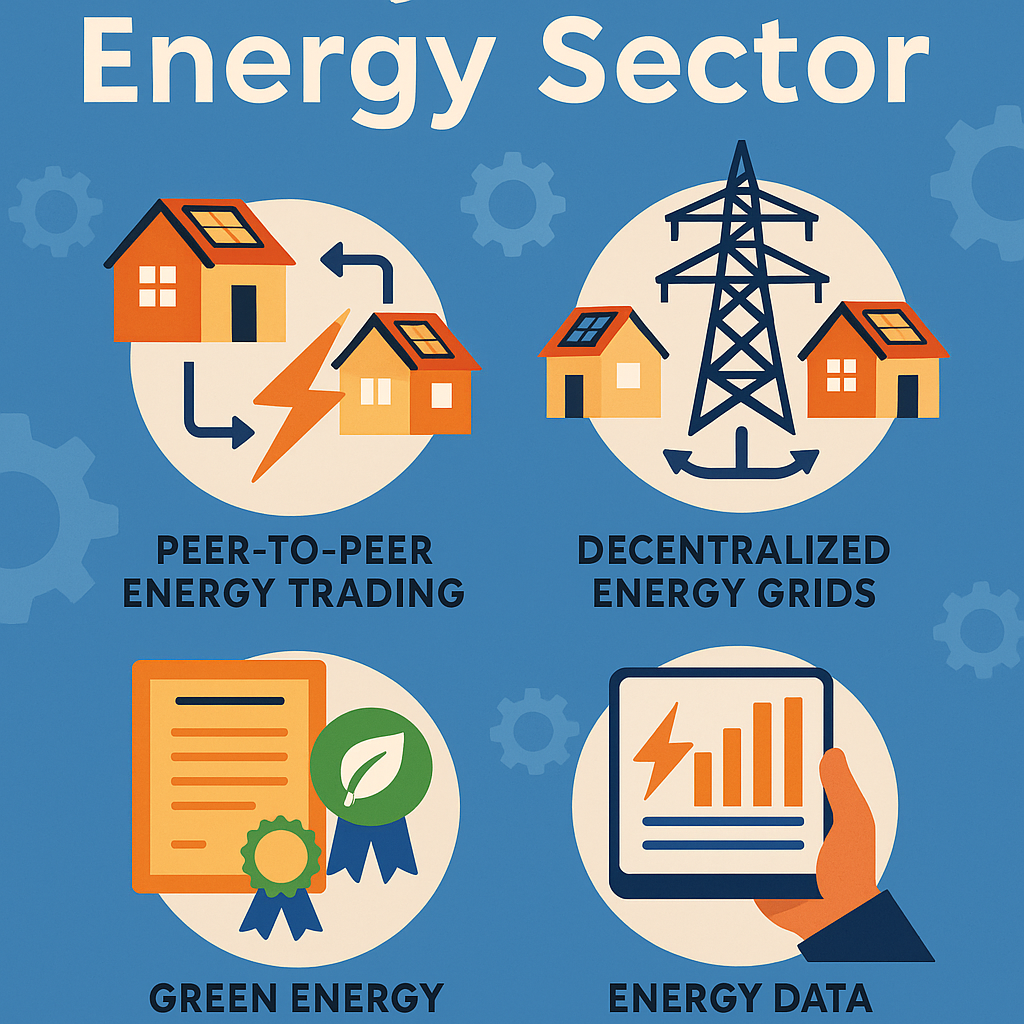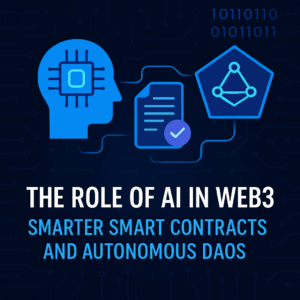Blockchain in the Energy Sector:
Explore Flutter Bees for Relaxing Taps and Strategy Buzz!
Play Now – Flutter Bees Mini App
Use the tapping game or defend the hive to ease your stress and earn rewards!
Blockchain in the Energy Sector
The energy sector, long dominated by centralized systems, is undergoing a digital transformation, and blockchain technology is at the forefront of this revolution. By introducing transparency, automation, and decentralized trust, blockchain is making energy more efficient, secure, and accessible.
Key Applications of Blockchain in Energy
- Peer-to-Peer Energy Trading
Blockchain enables individuals to sell excess energy (like from solar panels) directly to others in their community without intermediaries. Smart contracts automate the buying and selling process. - Decentralized Energy Grids
Microgrids powered by blockchain help balance energy demand and supply at a local level, reducing transmission loss and enhancing grid reliability. - Green Energy Certification
Blockchain can verify and track renewable energy certificates (RECs) to ensure that green energy claims are authentic and traceable. - Energy Financing and Crowdfunding
Smart contracts facilitate crowdfunding for renewable energy projects, ensuring transparent use of funds and investor returns. - Energy Data Management
Consumers can securely store and share their energy usage data with suppliers or third parties using blockchain-based systems, enhancing privacy and control.
Mid-Buzz Break – Tap for Calm, Strategize to Win!
Join the Hive – Flutter Bees Telegram Mini App
Relieve stress and win bonuses by tapping or watching others play!
Benefits of Blockchain in Energy
- Transparency: Every transaction is recorded and can be audited.
- Security: Tamper-proof data ensures reliability.
- Efficiency: Automated smart contracts eliminate delays and reduce costs.
- Decentralization: Empowers communities to manage their own energy.
Challenges to Overcome
- Scalability: Handling massive data from smart grids requires high-performance blockchains.
- Regulations: Energy laws vary by region and may hinder decentralized systems.
- Interoperability: Integrating blockchain with existing energy infrastructure is complex.
Blockchain’s role in transforming the energy industry is just beginning. From enabling local energy markets to verifying sustainability claims, it opens new possibilities for a cleaner, more democratic energy future.
Wrap Up with Flutter Bees – Tap, Watch, Relax!
Buzz into Wellness with Flutter Bees
Complete stress relief tasks and earn rewards in our fun Telegram mini app!






Post Comment